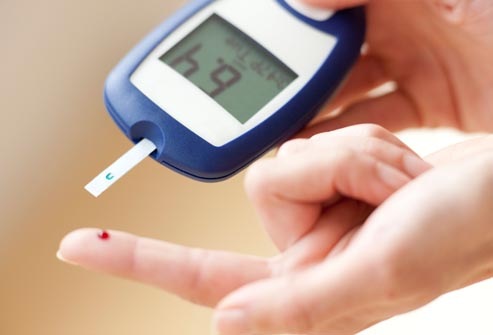Top 20 Diabetes Mellitus Questions
Diabetes mellitus is also known as diabetes. A recent study by Center for Disease Control and Prevention, reveals nearly 29 million Americans have diabetes mellitus. The study also showed that one in every four Americans are unaware they have this disease. Diabetes mellitus occurs when glucose in the blood is too high. Glucose is naturally in your blood because your body needs it for energy. However, too much glucose in your blood is not good for your health and can lead to serious health complications.
Why Do People Get Diabetes Mellitus?
Diabetes mellitus can occur through genetic or molecular causes. In particular causes, some individuals may be born with or tend to develop diabetes even if it is not inherited.
What is Prediabetes?
Prediabetes is when your blood sugar level is high but not high enough to be considered a type 2 diabetic. In simpler words, Prediabetes means you are at high risk for diabetes but have time to reverse the disease by staying physically active and consuming a healthy diet such as a vegan or paleo diet.
What is Type 1 Diabetes?
Type 1 diabetes, also known as juvenile diabetes, is a condition where the pancreas produces very little or no insulin. Treatment can help alleviate the symptoms, but type 1 diabetes cannot be cured. Although this disease usually affects individuals under 20 years of age, it can develop at any age.
What is the Cause of Type 1 Diabetes?
The exact cause of this condition is unknown; However, Type 1 Diabetes occurs when the body’s immune system cannot function properly and begins to destroy insulin producing cells.
What is Type 2 Diabetes?
Type 2 diabetes, also referred to as adult onset diabetes, is a condition where the body causes your blood glucose levels to raise higher than normal.
What Causes Type 2 Diabetes?
There is a combination of factors that can cause an individual to develop this condition. In short, genetics and lifestyle play a significant role. This includes lack of exercise, eating unhealthy meals, and even being overweight or obese.
What is Gestational Diabetes?
Gestational diabetes is diabetes during pregnancy. Unfortunately, this condition is first diagnosed during pregnancy. When pregnant, women naturally become more resistant to insulin. If you are healthy and not diabetic, this is not a problem. However, if you develop gestational diabetes, you must be treated as soon as possible as it can raise serious health conditions for the mother and newborn.
What are the Diabetes Symptoms in Both Men and Women?
It is important to keep in mind that type 2 diabetics may not even show any symptoms. Below are symptoms experienced by both males and females.
• Frequent Thirst
• Frequent Urination
• Unexplained Weight Loss or Weight Gain
• Nausea
• Wounds Heal Slowly
• Fatigue
• Blurred Vision
• Breath has an acetone, fruity, or sweet odor.
What are Diabetes Symptoms in Women?
Diabetes symptoms in women are sometimes different than men. The symptoms of diabetes in women are:
• Urinary Infections
• Polycystic Ovary Syndrome
• Female Sexual Dysfunction
• Vaginal Yeast Infections
• Oral Yeast Infections
• Vaginal Thrush
What are the Diabetes Symptoms in Men?
The diabetes symptoms in men are:
• Erectile Dysfunction and Inability to Maintain Erect
• Retrograde Erection
• Urologic Issues
Which Diabetes is Most Common?
According to the American Diabetes Association, Type 2 Diabetes is the most common in America.
Is Diabetes Genetic?
While Type 1 diabetics can develop without genetics or hereditary, Type 2 diabetes is the opposite. If you have a history of diabetics in the family, you should be extra cautious.
How Does Obesity Lead to Type 2 Diabetes?
Obesity and being overweight is linked to life threating disease including heart disease, cancer, strokes, high blood pressure, osteoarthritis, and diabetes. Obesity can lead to diabetes because adipose tissue (fat tissue) can release fat molecules into the blood which affects the insulin response cells. This leads to reduced insulin sensitivity.
How Do You Know You Have Diabetes?
You should visit your family physician or a doctor that can give you a medical evaluation and diagnosis to confirm if you are a diabetic.
How Does Diabetes Affect the Heart?
Individuals with diabetes mellitus are at higher risk of developing heart disease at a younger age. This is due to the fact high blood glucose damages the blood vessels and nerves that control the heart. This can also put you at increased risk for a stroke.
How Does Diabetes Affect the Feet?
Uncontrolled diabetes can cause nerve damage to the feet. This can make the feet numb and make people with diabetes unaware of foot ulcers or injuries.
What is a Diabetic Coma?
A diabetic coma is another serious health condition associated with diabetes. A diabetic coma is typical when a diabetic individual inhibits hyperglycemia or ketoacidosis.
Is There a Diabetes Diet?
There are many effective diets such as vegan, paleo, and even ketosis diet. A diabetes diet should stay consistently healthy.
How Do You Treat Diabetes?
Diabetes can be treated with medication, monitoring, and therapy. Managing diabetes depending on the particular condition an individual has.
What Happens When Diabetes is Untreated?
Individuals with diabetes mellitus that is not treated can phase serious complications. These include heart disease, stroke, nerve damage, organ damage, and damage to the blood vessels.
Can Diabetes Be Cured?
Though there is no cure for any type of diabetes mellitus, it can be treated and controlled. You should always consult your physician to learn more about what treatment is right for you.









